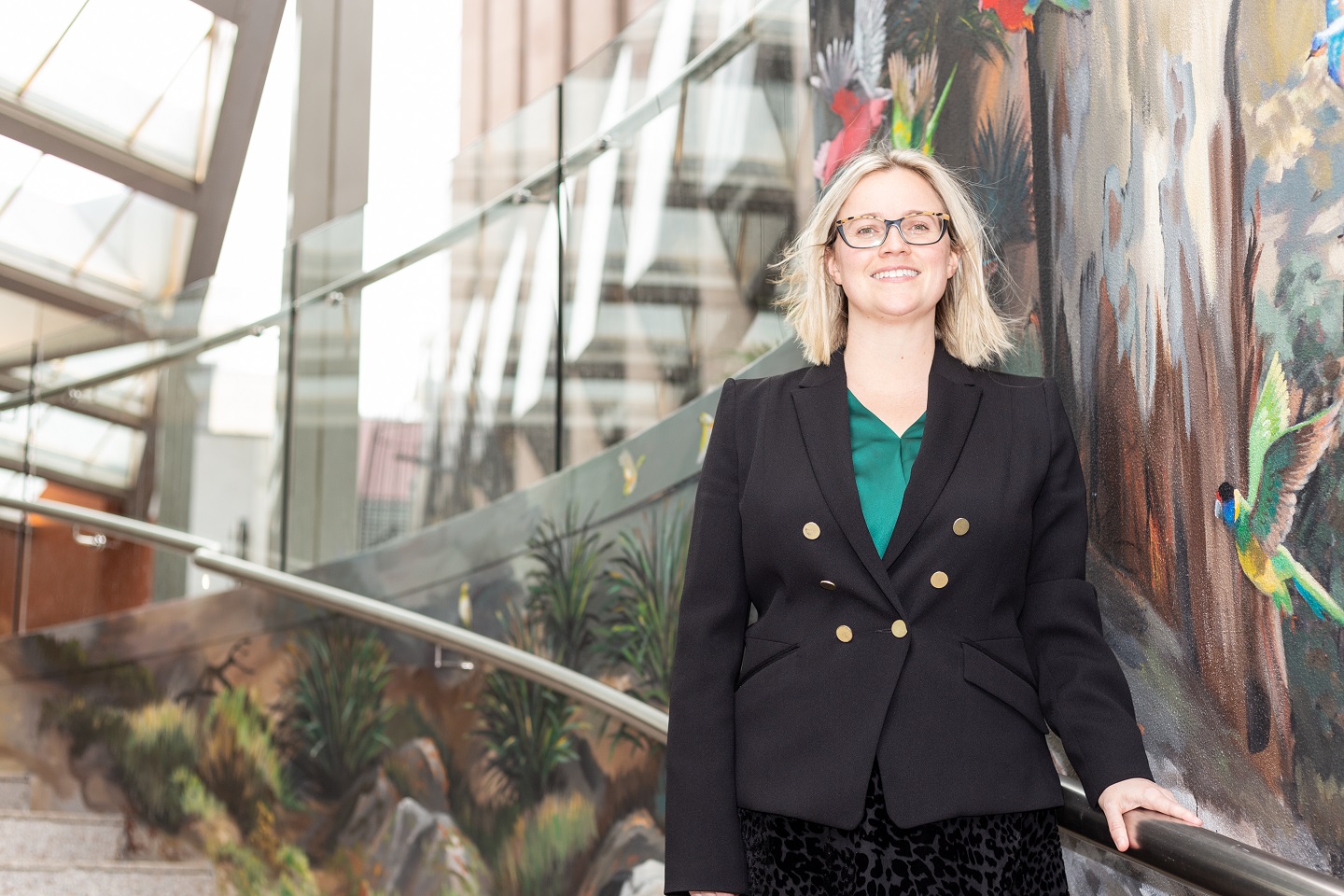A group of emerging Perth minds is using machine learning for everything from power grids to poetry.


A group of emerging Perth minds is using machine learning for everything from power grids to poetry.
Every Thursday night in Perth, programmers and entrepreneurial types in the Perth Machine Learning Group meet to discuss the application of cutting-edge computer science to some of Western Australia’s perplexing problems.
Machine learning is part of the broader field of artificial intelligence, using statistical techniques that seek to mimic the human mind and train computers to pick out patterns from large chunks of data.
The science underpins operations such as autonomous haulage trucks up in the Pilbara or self-driving cars under development by Google in the US.
One particularly creative application of machine learning was on show at Perth Fringe Festival earlier this year.
A team from PMLG, led by innovation consultant Lauren Amos, created a robot that could generate poetry.
The robot was present during the festival at the BitLit Machine Poetry Corner, with about 4,000 visitors in the month it was in action.
The team received a $3,500 grant for the project from Fringe, training the ‘model’ on a collection of classic and children’s poems.
“Teaching people to be creative, learn new things, and to express themselves is a good part of being human,” Ms Amos told Business News.
“Creative work is a bit more accessible and engaging as a way of using technology.”
Developing sector
A number of big businesses in Perth are using machine learning and AI.
Shipbuilder Austal is using AI to train computers to automatically stabilise vessels as ocean conditions change.

CBH Group is WA's largest grain handler.
Grain handler CBH Group built an internal team last year to use data science for logistics, trading and predictive work.
Woodside Petroleum has used IBM’s Watson system to sharpen corporate knowledge retention, while Western Power is understood to be using the technique for forecasting power use and safety applications.
Several consultancies have started in Perth to provide services to bigger businesses that want to use machine learning to solve problems.
They compete with the likes of Deloitte, an international professional services firm with a strong presence in data science, and local IT consultancies such as Lateral.
Sherief Khorshid is one of a handful of Perth entrepreneurs who have made a business out of their passion for machine learning, founding Three Springs Technology in 2016.
Mr Khorshid now has six employees.
He told Business News his main clients included Newcrest Mining, Western Power and a medical business.
Much of that work is covered by non-disclosure arrangements, but prior contacts included helping a client turn two-dimensional photos of people into three-dimensional models.
“We (also) helped a startup in Queensland do some work on an ECG heartbeat signal monitoring system,” Mr Khorshid said.
Most of the work is on a consultancy basis, but Three Springs allocates about 20 per cent of the team’s time to pursuing its own breakout entrepreneurial ideas.
“We’re exploring and looking for our own intellectual property,” Mr Khorshid said.
A second consultancy, ThinkCDS, was founded by Mike Clark four years ago.
Similar to Three Springs, Mr Clark said he always had one eye on developing a scalable startup business in addition to consultancy work.
ThinkCDS’s projects have included detection of vessel movements, improving automation of reclaimers in mining, and leak detection using satellite imagery.
Landgate’s Spur program selected the water leak detection project for a grant in 2016.
Mr Clark said there had been a big increase in interest in AI from the corporate world since he opened the business.
He acknowledged the ongoing debate about how much of the news around AI was hype, and noted there had been a couple of ‘AI winters’ in the past, a term referring to lulls in the development of the technology.
But he said he felt there was a lot of substance behind the increased interest.
“The medical (sector) is very mature, mining is getting quite interested, also (banks) and utilities,” Mr Clark said.
Among the most successful of the Perth Machine Learning Group was co-founder John Vial, who consulted through his business Soundelve.
Mr Vial joined Fortescue Metals Group in October 2018 as autonomy technical lead, and is understood to be involved in the miner’s plans to establish a Future of Mobility Centre in Karratha.
Some businesses dip their toe in the water through hackathons, with Main Roads Western Australia a good example.
The state government department wanted to explore the use of a technique called ‘computer vision’ to identify hazards around roads, a process that is highly labour intensive and expensive using conventional means.
Iseeroo emerged from that hackathon in 2017, cofounded by Matt Dale.
Mr Dale said Iseeroo had not finalised a contract with the department and would be moving into consulting work, including advising a local startup.
Technology improving
PMLG’s Ms Amos said the technology used to train the poetry robot – natural language processing – was improving at pace.
“It’s a rapidly evolving field,” she said.
“If you did it again now, you’d probably produce even better text.”
Mr Dale said developments in computing power and cloud platforms meant machine learning was becoming in reach of most people, similar to 3D printing.
The key was getting the right data to train a model on, he said.
“The sentiment is, ‘yes we want to use machine learning’,” Mr Dale said.
“(But businesses) really need to have the data piece underneath sorted out.”
An example would be using photos for computer vision learning where it was not clear exactly what was in the image.
“If you or I can’t figure out what it is, you’ll never get a computer to do it,” Mr Dale said.
Perth performs
Quantify Technology Holdings chief executive Brett Savill said AI was becoming a part of life, interfacing with consumers particularly through home automation.
The company builds sensors and control systems to connect into AI models developed by heavyweights such as Amazon.
Mr Savill said Western Australia was achieving a lot for a state of its population size.
“Perth punches above its weight,” he said.
“There’s a lot of really interesting startups in this space.
“What’s fascinating is that they’re not all mining, although clearly mining is a vital driver.”















